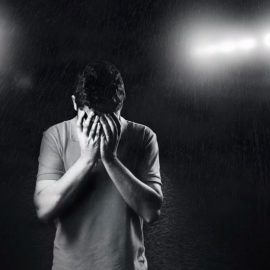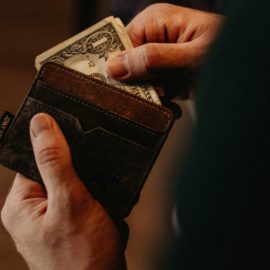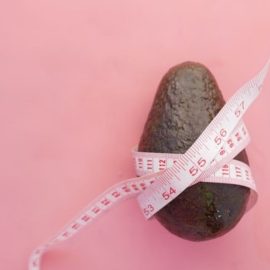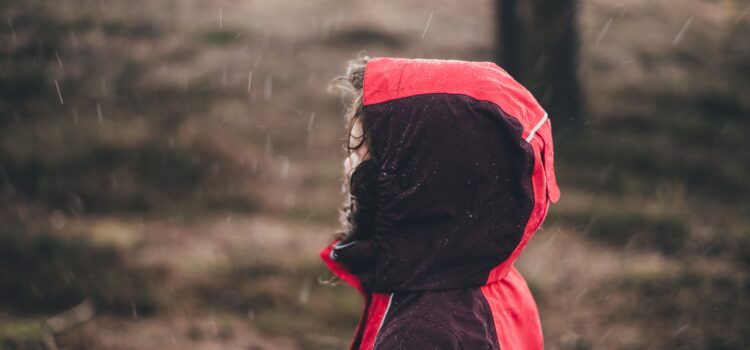
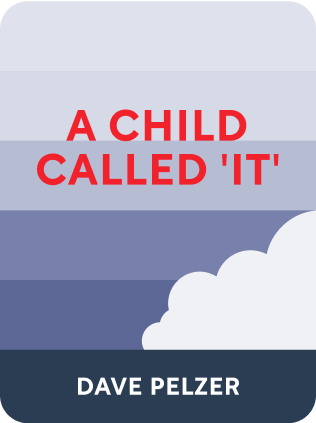
This article is an excerpt from the Shortform book guide to "A Child Called 'It'" by Dave Pelzer. Shortform has the world's best summaries and analyses of books you should be reading.
Like this article? Sign up for a free trial here .
What are the effects of child abuse in A Child Called “It”? How does the book demonstrate the short-term and long-term effects of child abuse?
In A Child Called “It” David Pelzer is horrifyingly abused by his mother. He shows the effects of child abuse in terms of hope and anger, and provides a perspective on how he has done as an adult.
Read more about the effects of child abuse as discussed in A Child Called “It”.
Effects of Child Abuse While It Happens
One of the effects of child abuse in the short-term is the loss of hope when you feel like you’re never going to be safe. For David, this happened after Father was no longer a protector. Eventually, Father’s presence no longer inhibits Mother’s abuse. In fact, Mother doesn’t even allow Father to see David.
David is truly the family slave. Mother abuses him, Father is forbidden from seeing or talking to him, and his brothers ignore him entirely.
At this point, David loses all hope of a better life. He stops praying to God and stops fantasizing about superheroes rescuing him.
That Christmas, David is stunned to receive a gift: roller skates. But they end up being just a prop for another of Mother’s cruel games. During the winter, she forces David to skate up and down the street for hours in the cold with no jacket.
A Short-Lived Respite
That spring, Mother is out of the house for a few days when she gives birth to her fifth son, named Kevin. It’s a desperately needed respite for David.
While Mother is gone, Father lets David play with his brothers, who let him join in without hesitation, showing the apparent power of Mother’s influence on everyone in the family.
David and his brothers also spend some time playing at the house of a neighbor, named Shirley, who has a young son. When Mother returns home, she and Shirley become friends—until Shirley begins asking why David faces so much punishment and is forbidden from playing with his brothers. Mother makes some excuses at first, but after a while, she flat-out says that David is bad and deserves punishment.
Soon after, Mother stops speaking to Shirley. Although Shirley hadn’t gotten directly involved, she had been someone kind who had noticed David, and the broken friendship makes him feel more isolated and vulnerable.
David Gets a Few Threads of Help
After Shirley is out of the picture, a few others outside the family begin to notice that something’s wrong.
During the first couple weeks of David’s fourth-grade year, he has a substitute teacher who intuits that there are problems in David’s home life.
The substitute teacher informs the school nurse. The following month, the nurse calls David to see her, and she asks him about his bruises and tattered clothes.
One of the effects of child abuse is the willingness to protect your abuser or the fear of telling the truth. David initially repeats the lies Mother has taught him to tell. After some talking, David begins to trust the nurse enough to tell the truth, and the nurse invites David to come back and talk to her anytime.
Effects of Child Abuse: Hate
After the incident with the social services worker—just before starting fifth grade—David loses faith in God and any hope of having a better life. David’s been praying to God for years, and he can’t fathom how he could live such a miserable life if God exists. David resigns himself to simply surviving each day.
David no longer mourns the lack of dignity and respect he receives. He will do anything to survive, resorting to any means necessary to get food. He even eats table scraps out of the dogs’ food bowl after the dogs have picked through it.
David detaches himself from physical pain and shows no outward emotion unless it’s strategic, when he thinks it will ease the abuse. Whereas he previously used his imagination to escape his torment, David stops dreaming and fantasizing. (Shortform note: Trauma survivors often stop using their imaginations. Read more about the effects of trauma in our summary of The Body Keeps the Score.)
A Survivor’s Perspective on Child Abuse
David felt completely alone in his abuse, but thousands of children endure similar atrocities. (Shortform note: As of 2015, the United States had 2.9 million child abuse cases reported annually.)
You’re likely to hear about unusual cases of abuse—such as grisly murders and extreme neglect—in the media. But more often, victims suffer quietly, join gangs, or run away from home.
The hardship is seldom over when the abuse ends because of the long-term effects of child abuse: Adult survivors of child abuse are more inclined to lash out or engage in self-destructive behaviors than the general population. (Shortform note: Child abuse survivors are 59 percent more likely to be arrested as a juvenile and 28 percent more likely to be arrested in adulthood.)
Many survivors also struggle to build and maintain healthy relationships because they’ve had such poor models; David intentionally broke the typical cycle of abuse in his relationship with his son. The long-term effects of child abuse generally carry past the abused generation.
David shared his story of abuse for two reasons:
- To demonstrate the strength of the human spirit under even the worst conditions
- To illustrate how a loving parent can morph into a cruel abuser
David emerged from his experience determined to overcome his troubled childhood by becoming a success. This drive inspired him to serve his country by joining the Air Force, and he feels that he continues to serve others by sharing his story, giving talks, and leading workshops. David wants other victims and survivors to know they’re not alone, and he wants everyone to know that it’s possible to endure anything and emerge triumphant.

———End of Preview———
Like what you just read? Read the rest of the world's best book summary and analysis of Dave Pelzer's "A Child Called 'It'" at Shortform .
Here's what you'll find in our full A Child Called 'It' summary :
- How David Pelzer survived horrific abuse at the hands of his mother
- How victims and survivors of abuse can find support and overcome their painful past
- Why child abuse may go unnoticed by other adults


